Hellooo Loyal Readers,
I’m back with another inspiring young Kurdistani woman. I have been lucky enough to briefly meet Beri once or twice, but her work speaks loudly, and I have always been a fan. Some people, you watch their work from far, and you applaud what they do, and how they do it. I honestly can’t think of anyone else who in 140 characters (or less) melts your heart away. She comes through as a humble, kind human being, who in her world of filmmaking, writing and photography is being a voice to Kurds and Kurdistan. Often described as “an award winning writer and filmmaker” Beri is just that, award winning! And how amazing it is to see a fellow young Kurdish woman be recognized not just within Kurdistan but also outside for the work she does in a field that men often find it difficult to succeed in.
I admire Beri, her personality and her work! We have promised eachother a chat over some chai, and it is long over due, but here, we can together read Beri’s words as she speaks about life, career and dreams!
Are you ready?
Name: Beri Shalmashi
Place: Somewhere between Kurdistan, Egypt, LA, and the Netherlands
Occupation: Writer, filmmaker
Mandalawi: Let’s start broad, what do you do?
Beri: I hold an MA in Film, I have studied in the Netherlands, and for a short while in Los Angeles as well. The year I graduated, I received an award as ‘the most excellent student in the Netherlands’ from the Dutch minister of education, an award to highlight talents with a bicultural background, the best part: it included a scholarship to study at UCLA. Although I have always tried to be both academic and artistic, most of what you might (get to) know me for is artistic. I work as a screenwriter and director, and have had great opportunities doing my work in The Netherlands.
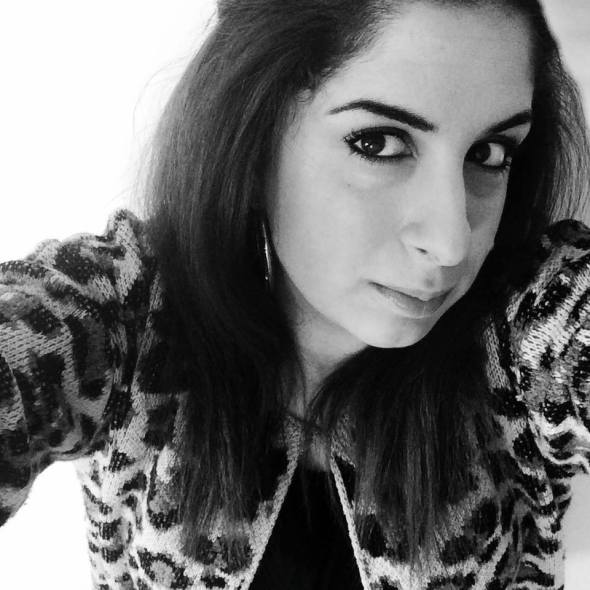
However, in the recent years I have lived at four different continents, most of you will know me for living in Kurdistan – where I moved to early 2012. After graduation, I have been based in Los Angels, Cairo and Amsterdam, too.
In Erbil, I have tutored at Salahaddin’s Cinema Department, I have been writing screenplays for long films yet to be produced, I have set up a PR firm, Meydan, with my best friend and business partner (as that is the things that Kurdistan makes you do) and like many of us I have been involved in voluntary projects, one of the highlights was definitely being amongst the first ambassadors of Kurdistan at One Young World, back in 2012.
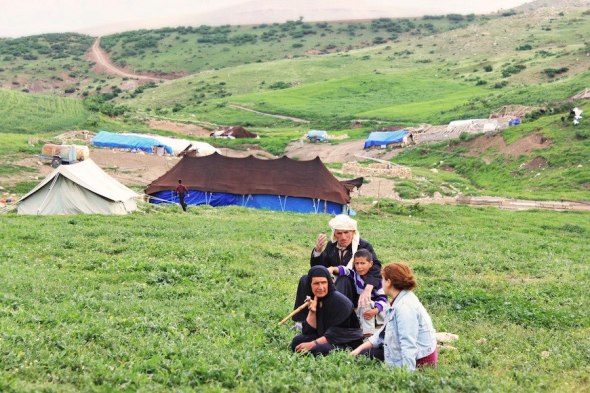
Right now, I should be writing on one of the two novels I have been contracted to write, but the situation in Kurdistan is so distracting, I am trying to see how I can tell our story through films for a broad audience – financed outside of Kurdistan.
Mandalawi: What’s your journey so far, how did you get to where you are today?
Beri: I always like looking back at when I was still in high school, I had not planned for this rollercoaster of a journey. I was an active student, I had set up the school’s magazine, our yearbook, I took part in the school’s musical and would be in charge of several events. And I was preparing to study medicine after high school. I had all the right grades, after working really hard to pass math, medicine and chemistry. But I didn’t get through our lottery system. At the same time, I was awarded the ‘Young Writers Award’ and got to do a writing course, I chose to adapt a story I wrote for the school’s magazine into a screenplay and then I decided to get it funded – during the shooting of that film, I fell in love with filmmaking.
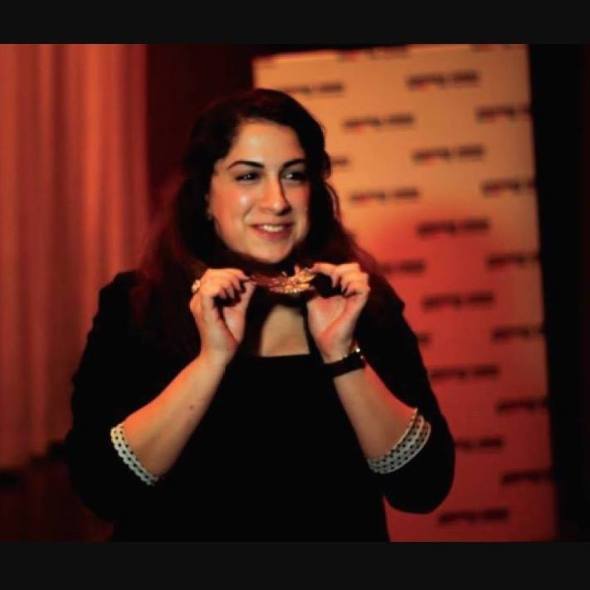
Mandalawi: What is your passion? Anything in this world you live for?
Beri: I am in love with storytelling, be it in any shape, writing, photography, music, performing arts, it all comes together in cinema. I like creating chaos, and then having to put everything in the right place, letting it make sense just through where I put every detail, sound, comma, anything. I like communicating with others, convincing them of what I believe in, making them see what’s in my head and together make it even better, and make it real, sharing a very personal emotion with a broad audience, from anywhere in the world, and actually make them feel the same.
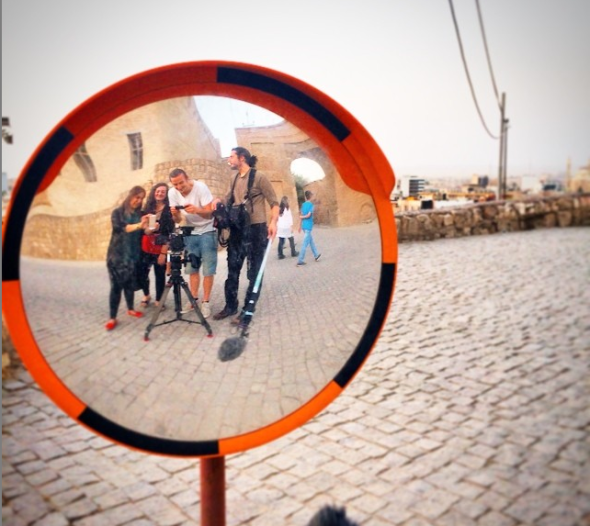
Mandalawi: How is a day in your life like?
Beri: No day is the same. Sometimes it’s hard to create and maintain a routine this way, it depends on the phase of the projects I am in. When I am shooting a film, that means one needs to be on set around 7AM and weirdly enough I am never too tired to be on set. When I am pitching and developing, it means you go from writing, to meeting, to coffee, to meeting and just hoping that all time you invest into talking with clients, producers, channels, will make the projects come to life, so you can dive into the creative process again.
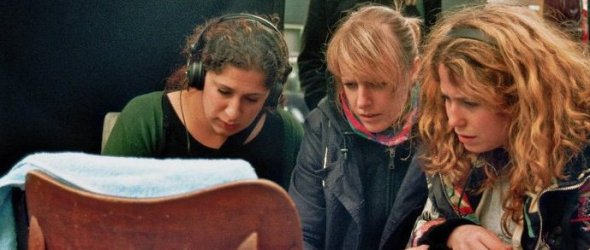
Mandalawi: Your source of support? What or who keeps you going?
Beri: The magic of sharing your imagination with other human beings. It’s in little things. I have had people walk up to me in public, crying, because a (Dutch) film I made, brought back memories of a long-suppressed loss. Or in audiences, when you hear others laugh and see them cry. I know, it’s a bit odd, but what they feel, is what I – and everyone involved – felt during the making, I think storytelling is an incredibly strong tool of communication.
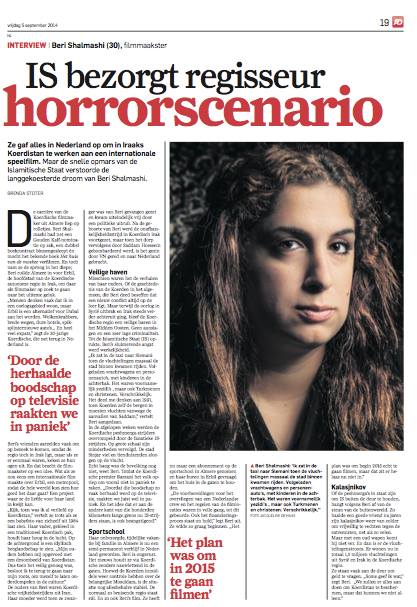
Living in and working in Kurdistan as young, independent, single woman, is really hard. And sometimes I do interviews not necessarily to promote myself, but to promote following one’s passion and talents (because you have to have both). I gave an interview in Avin Aso’s live show on KurdMax and the next day I sat in a taxi with quite a traditional driver. My friend and he dropped me off home, and later on, my friend wrote me the driver had recognized me from TV. He was very happy to have met me and while watching the show he told his daughters to take an example in me, and to contact me on Facebook if they want to work in film as well. And that, just that, for a traditional Kurdish man to allow his daughters to follow their dreams and go into the very hard creative sector – that is what keeps me going.
Mandalawi: What challenges do you face in what you do?
Beri: In Kurdistan, too many unnecessary challenges that don’t have anything to do with my specific work. This is because it is hard to grasp for others, what my work actually inherits, it is also because we don’t have an (independent) industry. Even at the university’s Cinema Department, there is barely an understanding of what ‘Cinema’ is. I don’t even know where to start. There is no strategy for film in the Kurdistan Region either. And then there is the misunderstanding that film and arts are subjects one studies when not intelligent enough to get into other fields. And then there is the fact of being in Erbil on yourself, being a stubborn young female, and also being from Rojhelat, originally.
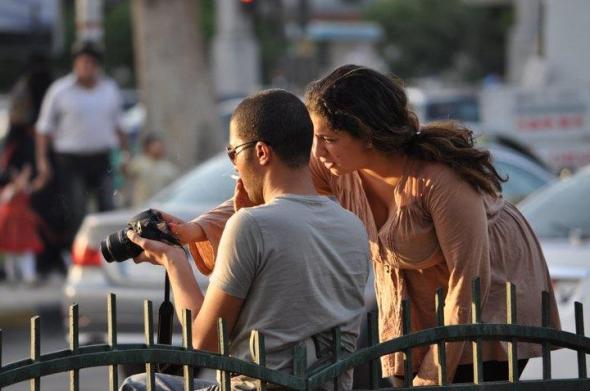
Beri: But the above is only related to working in Kurdistan. The normal challenges in my work are that in the end, you are the one carrying a project for the initial phase all the way up to the premiere. Of course, every phase of the project brings new and exciting people with it. But you are the one having to convince a lot of people that the idea in your head in combination with you is worth spending millions on. Millions of dollars. So, when you see me writing and drinking coffee, you might not consider it ‘work’, but I can feel like there is a heavy load upon my shoulders.
Mandalawi: How do you deal with those challenges
Beri: I use the challenges to really choose what I believe in and I just hold on to those projects really tight, knowing I can make them work one way or another, as long as I am flexible, in creativity as well as in my timeline. It has been six months since I had to delay the project of my dreams, ‘Four Gates’ that I had planned to be shooting right now. A big story set in Erbil. But because of the political situation back then – and now still – the sponsors had to pull back, no one could take a million-dollar-risk into shooting a film under unpredictable circumstances. My ego has still not gotten over it, and I am using different routes now to make the project happen anyway. What I have learned from that situation is that it makes sense for the Kurdistan Region not to have an industry or common sense about cinema, we have always had wars destroying any foundation we’d have built.
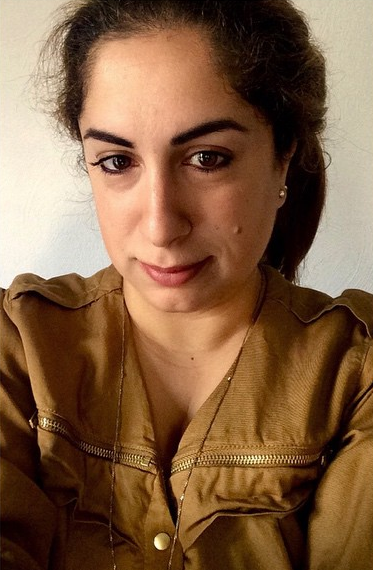
Mandalawi: Anything we should keep an eye on? Future plans/ projects?
Beri: Oh, yes. I am going to make ‘Four Gates’ happen. And I have adapted the novel ‘The House of the Mosque’, an epic story about Iran. You guys and gals can read that novel while the film goes into preproduction. And then there is smaller projects, you can keep an eye on my Tweets, surely I will share everything that is going on. Oh, I almost forgot, I have directed a short film that we have entirely shot from the perspective of a hot air balloon, drifting over Kurdistan during spring. It’s called ‘Heavens over Kurdistan’, keep an eye on that, too.
Mandalawi: Three dreams in your life
Beri: For my father to see Rojhelat again, to have a family of my own, to see the things I put my effort into, move people’s heart and minds.
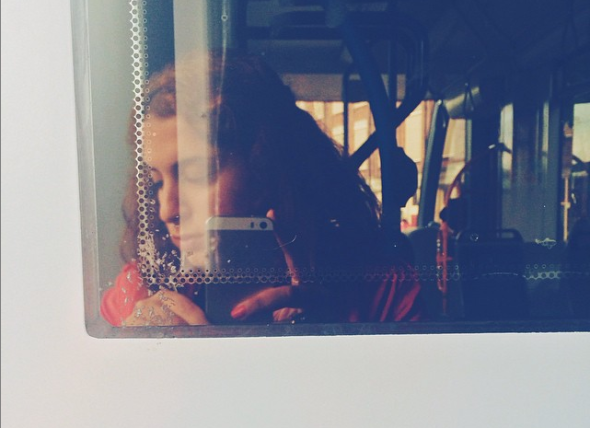
Mandalawi: Any advice for other girls in Kurdistan
Beri: Dream, live those dreams, but be realistic. Take one step at a time and know what you’re aiming for. Choose a job that fits your talents. And please know, if you love what you do, you’re good at what you do and you can convince others of this, even if you’re father, mother or brother or neighbor’s goldfish doesn’t like what you’re doing, when they see the result, and see how others appreciate what you do and see you can maintain a living with it, eventually, they will know you’re doing the right thing.
In Kurdistan I noticed neighbors, family and acquaintances acknowledged what I did when they saw the result of my work in the media.
You can follow Beri on Twitter here, drop her a message on Facebook or follow her on Instagram!
Pictures: Taken from Beri’s social media pages with full permission! :)
Until next time
Lots of love from
My Nest in Kudistan
Sazan,
I’m back with another inspiring young Kurdistani woman. I have been lucky enough to briefly meet Beri once or twice, but her work speaks loudly, and I have always been a fan. Some people, you watch their work from far, and you applaud what they do, and how they do it. I honestly can’t think of anyone else who in 140 characters (or less) melts your heart away. She comes through as a humble, kind human being, who in her world of filmmaking, writing and photography is being a voice to Kurds and Kurdistan. Often described as “an award winning writer and filmmaker” Beri is just that, award winning! And how amazing it is to see a fellow young Kurdish woman be recognized not just within Kurdistan but also outside for the work she does in a field that men often find it difficult to succeed in.
I admire Beri, her personality and her work! We have promised eachother a chat over some chai, and it is long over due, but here, we can together read Beri’s words as she speaks about life, career and dreams!
Are you ready?
Name: Beri Shalmashi
Place: Somewhere between Kurdistan, Egypt, LA, and the Netherlands
Occupation: Writer, filmmaker
Mandalawi: Let’s start broad, what do you do?
Beri: I hold an MA in Film, I have studied in the Netherlands, and for a short while in Los Angeles as well. The year I graduated, I received an award as ‘the most excellent student in the Netherlands’ from the Dutch minister of education, an award to highlight talents with a bicultural background, the best part: it included a scholarship to study at UCLA. Although I have always tried to be both academic and artistic, most of what you might (get to) know me for is artistic. I work as a screenwriter and director, and have had great opportunities doing my work in The Netherlands.

However, in the recent years I have lived at four different continents, most of you will know me for living in Kurdistan – where I moved to early 2012. After graduation, I have been based in Los Angels, Cairo and Amsterdam, too.
In Erbil, I have tutored at Salahaddin’s Cinema Department, I have been writing screenplays for long films yet to be produced, I have set up a PR firm, Meydan, with my best friend and business partner (as that is the things that Kurdistan makes you do) and like many of us I have been involved in voluntary projects, one of the highlights was definitely being amongst the first ambassadors of Kurdistan at One Young World, back in 2012.

Right now, I should be writing on one of the two novels I have been contracted to write, but the situation in Kurdistan is so distracting, I am trying to see how I can tell our story through films for a broad audience – financed outside of Kurdistan.
Mandalawi: What’s your journey so far, how did you get to where you are today?
Beri: I always like looking back at when I was still in high school, I had not planned for this rollercoaster of a journey. I was an active student, I had set up the school’s magazine, our yearbook, I took part in the school’s musical and would be in charge of several events. And I was preparing to study medicine after high school. I had all the right grades, after working really hard to pass math, medicine and chemistry. But I didn’t get through our lottery system. At the same time, I was awarded the ‘Young Writers Award’ and got to do a writing course, I chose to adapt a story I wrote for the school’s magazine into a screenplay and then I decided to get it funded – during the shooting of that film, I fell in love with filmmaking.

Mandalawi: What is your passion? Anything in this world you live for?
Beri: I am in love with storytelling, be it in any shape, writing, photography, music, performing arts, it all comes together in cinema. I like creating chaos, and then having to put everything in the right place, letting it make sense just through where I put every detail, sound, comma, anything. I like communicating with others, convincing them of what I believe in, making them see what’s in my head and together make it even better, and make it real, sharing a very personal emotion with a broad audience, from anywhere in the world, and actually make them feel the same.

Mandalawi: How is a day in your life like?
Beri: No day is the same. Sometimes it’s hard to create and maintain a routine this way, it depends on the phase of the projects I am in. When I am shooting a film, that means one needs to be on set around 7AM and weirdly enough I am never too tired to be on set. When I am pitching and developing, it means you go from writing, to meeting, to coffee, to meeting and just hoping that all time you invest into talking with clients, producers, channels, will make the projects come to life, so you can dive into the creative process again.

Mandalawi: Your source of support? What or who keeps you going?
Beri: The magic of sharing your imagination with other human beings. It’s in little things. I have had people walk up to me in public, crying, because a (Dutch) film I made, brought back memories of a long-suppressed loss. Or in audiences, when you hear others laugh and see them cry. I know, it’s a bit odd, but what they feel, is what I – and everyone involved – felt during the making, I think storytelling is an incredibly strong tool of communication.

Living in and working in Kurdistan as young, independent, single woman, is really hard. And sometimes I do interviews not necessarily to promote myself, but to promote following one’s passion and talents (because you have to have both). I gave an interview in Avin Aso’s live show on KurdMax and the next day I sat in a taxi with quite a traditional driver. My friend and he dropped me off home, and later on, my friend wrote me the driver had recognized me from TV. He was very happy to have met me and while watching the show he told his daughters to take an example in me, and to contact me on Facebook if they want to work in film as well. And that, just that, for a traditional Kurdish man to allow his daughters to follow their dreams and go into the very hard creative sector – that is what keeps me going.
Mandalawi: What challenges do you face in what you do?
Beri: In Kurdistan, too many unnecessary challenges that don’t have anything to do with my specific work. This is because it is hard to grasp for others, what my work actually inherits, it is also because we don’t have an (independent) industry. Even at the university’s Cinema Department, there is barely an understanding of what ‘Cinema’ is. I don’t even know where to start. There is no strategy for film in the Kurdistan Region either. And then there is the misunderstanding that film and arts are subjects one studies when not intelligent enough to get into other fields. And then there is the fact of being in Erbil on yourself, being a stubborn young female, and also being from Rojhelat, originally.

Beri: But the above is only related to working in Kurdistan. The normal challenges in my work are that in the end, you are the one carrying a project for the initial phase all the way up to the premiere. Of course, every phase of the project brings new and exciting people with it. But you are the one having to convince a lot of people that the idea in your head in combination with you is worth spending millions on. Millions of dollars. So, when you see me writing and drinking coffee, you might not consider it ‘work’, but I can feel like there is a heavy load upon my shoulders.
Mandalawi: How do you deal with those challenges
Beri: I use the challenges to really choose what I believe in and I just hold on to those projects really tight, knowing I can make them work one way or another, as long as I am flexible, in creativity as well as in my timeline. It has been six months since I had to delay the project of my dreams, ‘Four Gates’ that I had planned to be shooting right now. A big story set in Erbil. But because of the political situation back then – and now still – the sponsors had to pull back, no one could take a million-dollar-risk into shooting a film under unpredictable circumstances. My ego has still not gotten over it, and I am using different routes now to make the project happen anyway. What I have learned from that situation is that it makes sense for the Kurdistan Region not to have an industry or common sense about cinema, we have always had wars destroying any foundation we’d have built.

Mandalawi: Anything we should keep an eye on? Future plans/ projects?
Beri: Oh, yes. I am going to make ‘Four Gates’ happen. And I have adapted the novel ‘The House of the Mosque’, an epic story about Iran. You guys and gals can read that novel while the film goes into preproduction. And then there is smaller projects, you can keep an eye on my Tweets, surely I will share everything that is going on. Oh, I almost forgot, I have directed a short film that we have entirely shot from the perspective of a hot air balloon, drifting over Kurdistan during spring. It’s called ‘Heavens over Kurdistan’, keep an eye on that, too.
Mandalawi: Three dreams in your life
Beri: For my father to see Rojhelat again, to have a family of my own, to see the things I put my effort into, move people’s heart and minds.

Mandalawi: Any advice for other girls in Kurdistan
Beri: Dream, live those dreams, but be realistic. Take one step at a time and know what you’re aiming for. Choose a job that fits your talents. And please know, if you love what you do, you’re good at what you do and you can convince others of this, even if you’re father, mother or brother or neighbor’s goldfish doesn’t like what you’re doing, when they see the result, and see how others appreciate what you do and see you can maintain a living with it, eventually, they will know you’re doing the right thing.
In Kurdistan I noticed neighbors, family and acquaintances acknowledged what I did when they saw the result of my work in the media.
You can follow Beri on Twitter here, drop her a message on Facebook or follow her on Instagram!
Pictures: Taken from Beri’s social media pages with full permission! :)
Until next time
Lots of love from
My Nest in Kudistan
Sazan,

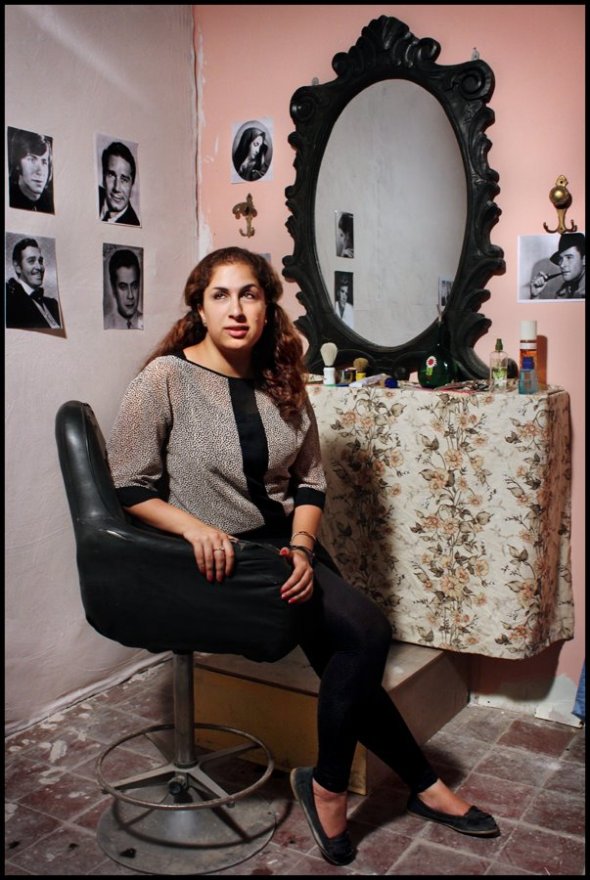
No comments:
Post a Comment